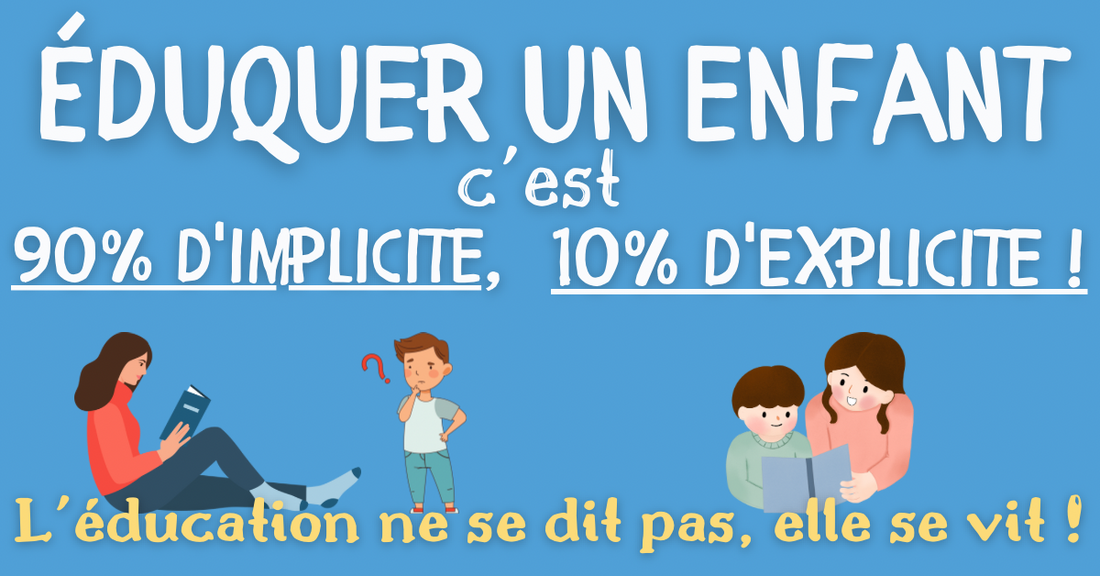
EDUCATING A CHILD IS 90% IMPLICIT, 10% EXPLICIT!
Laurie GozlanShare
Our children are great IMITATORS!
Formal education is of course important (that which is said, explained, such as moral lessons, or teaching at school), but our children learn and retain mainly by OBSERVING the adults around them.
Implicit education is that which we transmit through our daily actions and behaviors.
Our attitudes, our values, our habits, have a huge impact on the formation of the personality and character of our children.
Implicit education also extends to areas such as self-confidence, autonomy, resilience and creativity.
This does not mean that they will do everything like us. On certain points, they will mirror each other, and on others, in opposition.
But their development will always be linked to the example they have received, from us, or from any other authority figure likely to impact them (grandparents, brothers and sisters, teachers, friends, etc.)
Why is this interesting to know?
ACTIONS SPEAK LOUDER THAN SPEECHES!
Becoming aware of our role as a model can be particularly helpful on a daily basis, particularly in managing crises or the behavior of our children.
But in practice, how do we use it?
If we notice, for example, that our child tends to be impatient, and we want to help him improve that, 2 methods are available to us:
1. The speech explaining to him the advantages and virtues of patience
2. Set an example by behaving yourself as a patient person in concrete situations
If we are honest, we realize that very often, we find in ourselves the behaviors that we criticize in our children.
So the next time a car blocks the road and our child is with us, we can try to stay calm, be patient, and say:
" For me too, it's difficult not to get impatient, but I found a technique to help me. Do you want me to give it to you? We all have little things we can improve on, and that's what makes life interesting! If we were perfect, what a mortal bore it would be!"
We thus mix the implicit (by acting as a model) and the explicit (by explaining).
Does that mean we have to be careful about what we say or do in front of our children all the time? It's stressful though!
Of course, it's not about losing our naturalness, and even less about being perfect!
This would not even be beneficial to our child who would then set inhumane and impossible to achieve goals.
In the example of the car, we tell our child that it is difficult for us too!
In this way, we relieve him of guilt, and we show him that it is always possible to have difficulties in life and to improve!

2 comments
Bonjour, Je viens de commander et payer dimanche dernier la formation super héroïne et je n’ai aucune nouvelle de votre part depuis. Comment pouvons nous accéder à la formation ? Quand recevons nous les 2 livres. Merci beaucoup pour votre aide par retour.
Bonjour, je viens de payer la formation super héro et impossible d’y accéder. j’ai reçu un mail en anglais…. me disant de me connecter avec mon mail et un mot de passe farfelus, j’ai valider mon compte mais ne trouve pas l’accès à ma formation. pouvez-vous m’aider svp